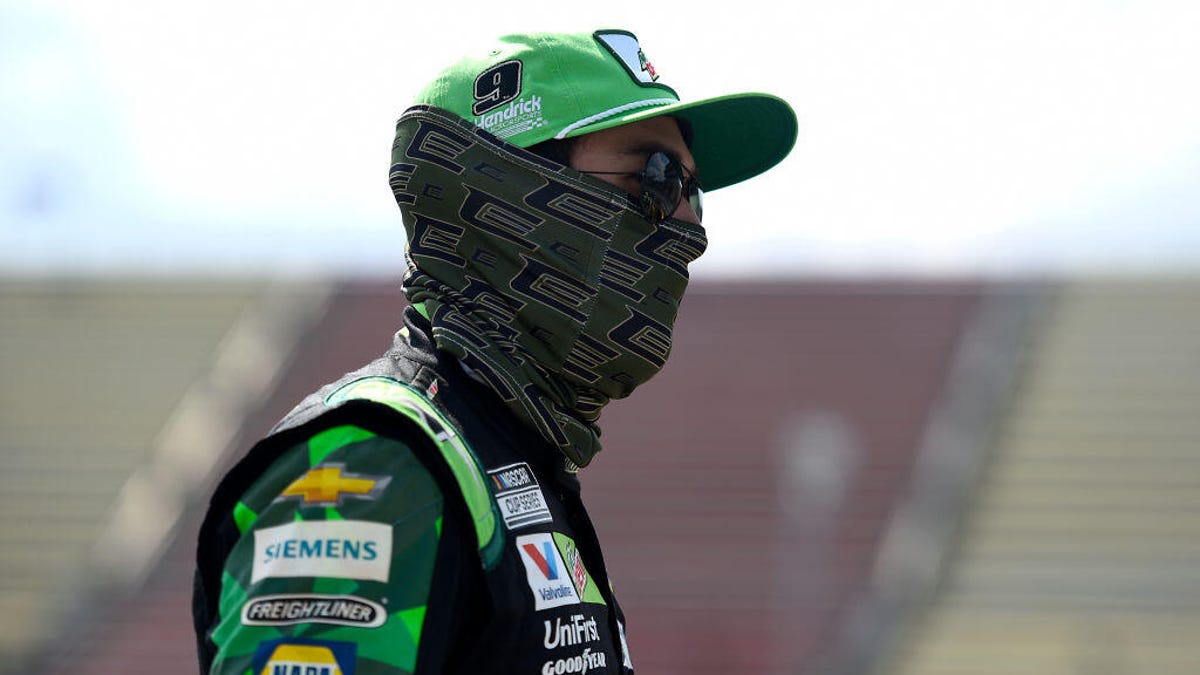Do neck gaiters spread coronavirus more easily? Not exactly
A new study tested one neck gaiter and found that it didn't slow the spread of respiratory droplets. But researchers say that doesn't tell the full story.

Which face covering is the most effective at slowing the spread of the coronavirus? Maybe not neck gaiters. Alarmist stories have been making the rounds about how these fabric tubes worn over the face don't offer any protection against spreading the coronavirus, quoting a study published in Science Advances from researchers at Duke University. But, according to the study's authors, those reports don't tell the whole story.
The researchers sought to create and test a method for evaluating the efficacy of various types of face coverings, from N95 masks to bandanas, in stopping the spread of respiratory droplets in the air. Current research suggests that coronavirus is spread through those respiratory droplets, which we expel when we talk, yell, sneeze, cough or sing.
They tested 14 different face coverings in all, most of which were fabric masks just like the ones you can buy basically anywhere right now. They also tested one fleece neck gaiter and one bandana. The results from their tests show that the bandana and fleece gaiter transmitted as many or more respiratory droplets as not wearing any kind of face covering.
However, the researchers say these results should not be extrapolated to all bandanas and neck gaiters out there. Dr. Martin Fischer, one of the authors of the study, told CNET, "Our work focused on developing a technique that can be replicated at other labs, rather than a comprehensive mask test. As we stated in the paper, our work was a preliminary study that included one fleece mask (also called gaiter mask, or neck gaiter) only -- we did not do a systematic study involving many masks, speakers and wear conditions. More studies are needed to make specific use recommendations."
Researchers tested 14 types of masks, including one neck gaiter.
In response to the Duke study, a team of researchers from Virginia Tech tested two types of neck gaiters to see how effective they were at containing respiratory droplets. One was made of a single layer of polyester and the other, made of polyester and spandex, used two layers of fabric. They found that both offered a similar level of protection to typical cloth masks, though the two-layer mask was more effective.
Neck gaiters have become a popular face covering because they can be worn many different ways and typically don't pull on your ears like a face mask does. Prior to the pandemic, they were typically worn to protect your face and neck from cold weather or to wick sweat away from your face and neck. Many of them are made of a single layer of thin fabric, and they were not originally designed to block respiratory droplets or slow the spread of viruses.
Because of that, Dr. Fischer points out that they might not be as protective as other types of cloth masks. "The fleece mask we demonstrated was a polyester/spandex mask. Typically, these masks are pretty thin to provide breathability, which is likely the reason for lots of particles getting though, broken into smaller pieces," he said. "However, we expect that there are variations of performance for different masks (even of the same type), and different users wearing identical masks."
Given that there are different types of neck gaiters made from a variety of different fabrics, we cannot say that all neck gaiters either don't slow the spread of the coronavirus, or are worse than not wearing any kind of face covering.
More research still needs to be done before we can definitively prove what kinds of non-medical face coverings are the best to prevent the spread of the coronavirus. We know that N95 respirator masks are among the most protective, but those masks are being reserved for medical professionals only. For the rest of us, reusable cloth masks are currently the best option we have, and at least according to some health authorities, that still includes neck gaiters.

